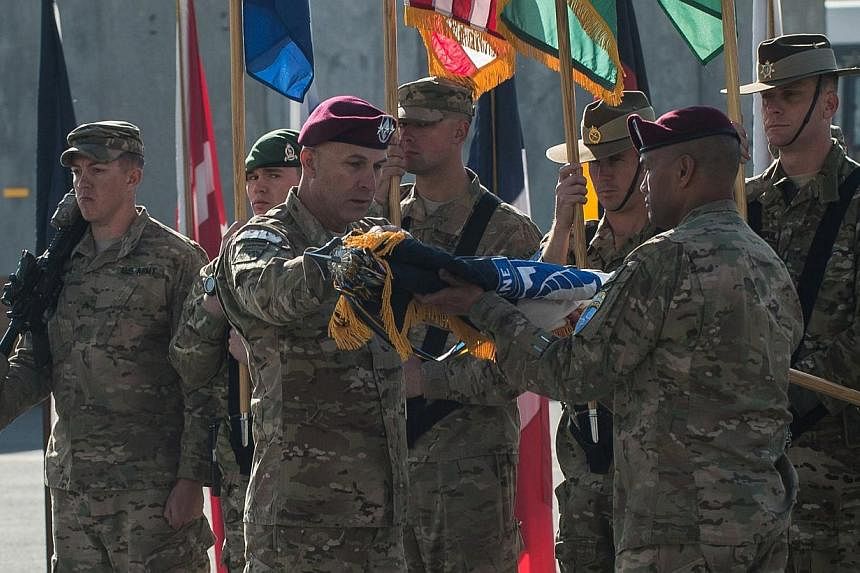KABUL (Reuters) - The US general who brought the Nato coalition's combat operations in Afghanistan to an end this week after over 13 years of war said Afghan security forces were "inept" at basic motor maintenance and were struggling to sustain troop numbers.
During a final tour of installations, Lieutenant-General Joseph Anderson said Afghan forces, fighting Taleban insurgents who were ousted from power by US-backed Afghan forces in 2001, struggled with logistics.
"The problem is you don't have units fixing stuff at their level," Anderson told Reuters last week, explaining why Afghan commanders often complained they lacked resources to fight. "This is inept. This is nothing to do with corruption. This is purely ineptitude." Another challenge was sustaining troop numbers in face of soaring casualties and defections. Nearly 20 per cent of army positions were unfilled as of October.
"Recruiting and retention aren't matching, and of course don't forget losses," Anderson said.
Close to 5,000 Afghan police and army personnel had been killed fighting the Taleban since the start of the year, he added.
Anderson said problems should have been addressed earlier but former president Hamid Karzai had refused to agree to deals allowing some foreign troops to stay beyond 2014. Ghani signed the agreements on his first day in office.
"The fact they're taking a look at how they're going to potentially restructure and reorganise... this is all part of what Nato, the US and everybody said was coming for a long time," Anderson said. "We lost a lost of time. We lost a whole year."
Anderson's reservations about the Afghan force, which has cost the United States over US$60 billion (S$75 billion) to train, equip and sustain so far, diverge from upbeat assessments in the West.
They also diverge from the official Afghan line. "The Taleban's casualties rose threefold this year and this shows how effective and well coordinated Afghan National Security Force operations were conducted in different parts of the country," Interior Ministry spokesman Sediq Sediqqi said.
Anderson was optimistic the government would improve the security force once a Cabinet had been appointed, saying President Ashraf Ghani had already boosted morale by giving commanders more independence.
Transit routes were of prime importance, he said, because the Taleban used them to traffic weapons and drugs and mount attacks on Kabul, which have risen in recent weeks.
"You've got a mix right now of uniform police, civil obedience police and the army, all in the same footprint debating over who's got primacy for responsibility," Anderson said. "That's a fundamental issue here."

